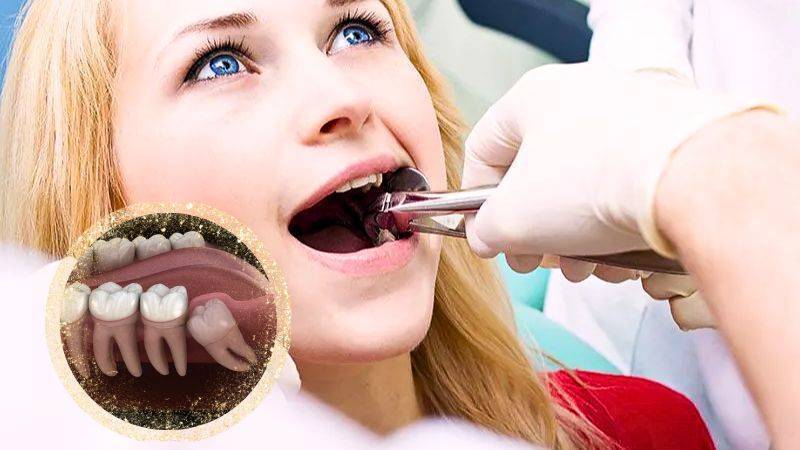Overview
The wisdom tooth, or third molar, is the last permanent tooth to develop in the human mouth. While it marks a stage of intellectual development and cognitive ability, many people question the purpose of this tooth.
This article explores the origin of wisdom teeth and sheds light on whether they provide any benefits for chewing or oral aesthetics.
Before delving into how long wisdom tooth pain lasts, it is essential to understand the story behind these teeth.
Story Behind Wisdom Teeth

The average adult mouth has 32 teeth, but wisdom teeth are the last four to develop. There is usually only space for 28 teeth, so wisdom teeth can grow crooked or misaligned, causing swelling and soreness.
In some cases, this condition can persist, affecting the quality of life. While extraction is a common solution, many people wonder how long wisdom tooth pain lasts if they choose not to remove the tooth.
If extraction is the preferred option, when is the best time to do it? Let’s explore these questions and provide insights on wisdom teeth pain, extraction, and recovery.
Do You Have Wisdom Teeth?
While wisdom teeth are common for many individuals, not everyone has them. This article delves into the reasons behind why some people might be missing their third molars.
According to research from the Journal of Dental Research, between 5-37 percent of people do not grow all four wisdom teeth.
Genetic factors may play a role in whether or not someone has these teeth, and if your parents lacked them, you may as well.
Additionally, environmental and dietary factors can also contribute to the absence of wisdom teeth.
Understanding the factors that influence the presence or absence of these teeth can help individuals make informed decisions about their dental health.
How long does the pain from wisdom teeth last?

The duration of wisdom tooth pain varies depending on when the tooth fully develops.
Wisdom teeth are usually fully developed between the ages of 17 and 21, but due to the structure of the jawbone, they do not all come in at once. Instead, the process is divided into several stages, which can last for a few months.
During each stage, the gum splits to allow part of the tooth to emerge, causing swelling and intense pain.
However, everyone’s experience is different. In some cases, it may take 4-5 years for wisdom teeth to fully develop, leading to pain throughout this period.
Wisdom tooth pain can make it difficult to eat and drink and can affect overall health and quality of life. As a result, some dentists recommend extracting wisdom teeth to alleviate these problems.”
What can you do at home?

To prevent infection and ease pain, it’s important to keep the affected area around the wisdom tooth clean.
Here are some home remedies you can try:
- Rinse your mouth regularly with warm, salt water or a Chlorhexidine mouthwash after meals or separate from brushing.
- Clean the area with a small toothbrush, interspace brush, or single tufted brush. Half-closing your mouth and relaxing the cheek and jaw muscles can help you reach the wisdom teeth more easily.
- Eat a soft diet to minimize biting trauma to the affected area.
- Over-the-counter pain relievers such as Paracetamol or Ibuprofen can help relieve pain, but follow the instructions on the package carefully to avoid overdosing. Be aware that different brands may contain the same painkiller.
When is it recommended to have wisdom teeth removed?

Generally, it is not necessary to remove wisdom teeth if they are not causing pain or affecting oral health. However, if the presence of wisdom teeth leads to dental issues such as dental caries, oral infections, or an unbalanced bite, then it may be necessary to remove them.
If removal is necessary, it is best to have it done as soon as possible. This can improve the success rate and recovery efficiency because the bone structure around the gums is softer earlier on, making it easier for the dentist to intervene.
Additionally, the tooth roots are not fully developed, making the extraction procedure smoother and less painful for the patient.
It is important to choose a reputable dental clinic for the extraction procedure to ensure a smooth process without any complications.
By understanding the duration of wisdom tooth pain and the ideal time for removal, you can make informed decisions about your oral health.
What should I expect after a wisdom tooth is taken out?

After a wisdom tooth is extracted, you may experience some discomfort, which can vary depending on the complexity of the extraction. Swelling may also occur for a few days.
Your dentist or surgeon should explain any potential risks associated with the extraction, such as temporary or permanent numbness of the lip.
The dental team will provide you with guidance on how to care for your mouth after the extraction, including information on pain relief, diet, and oral hygiene.
It is important to follow these instructions carefully to promote healing and prevent complications.
Also Read






